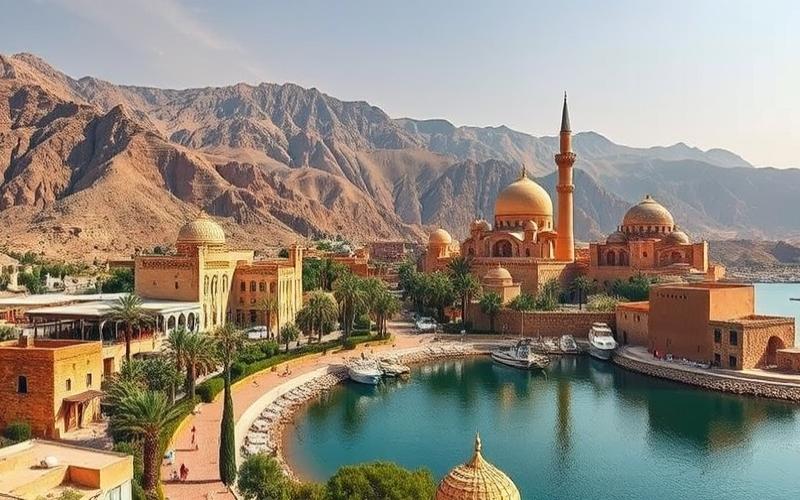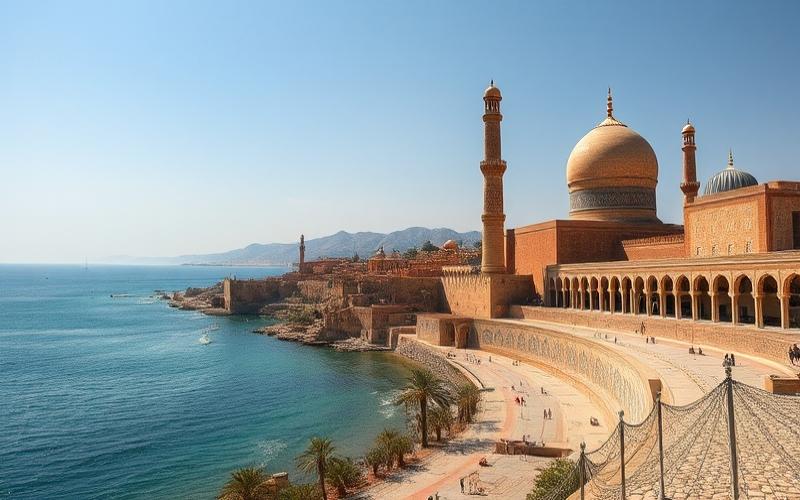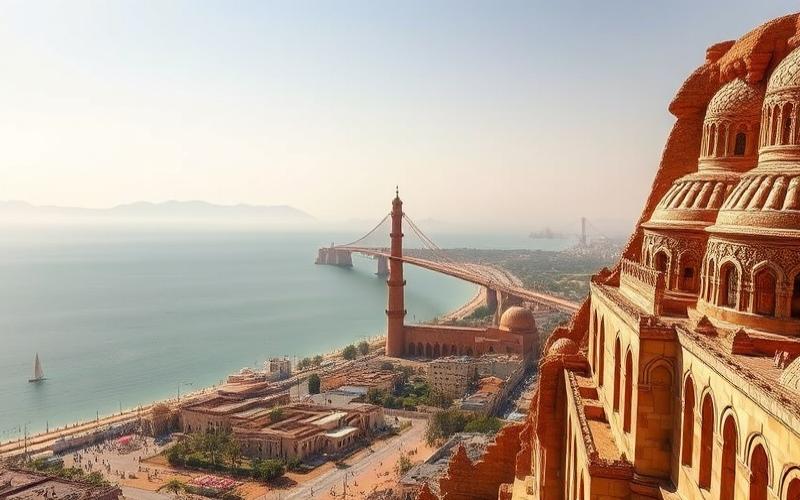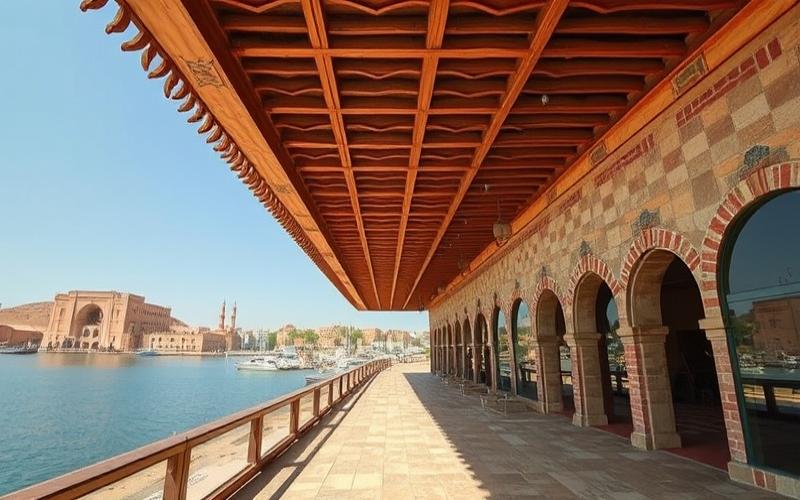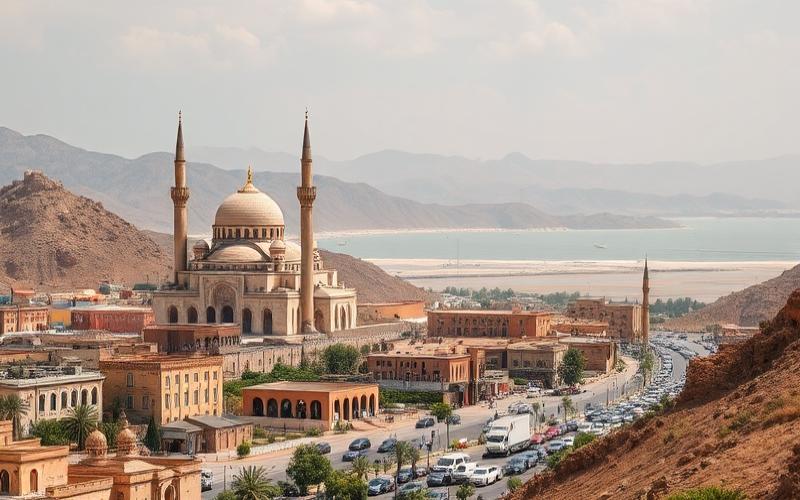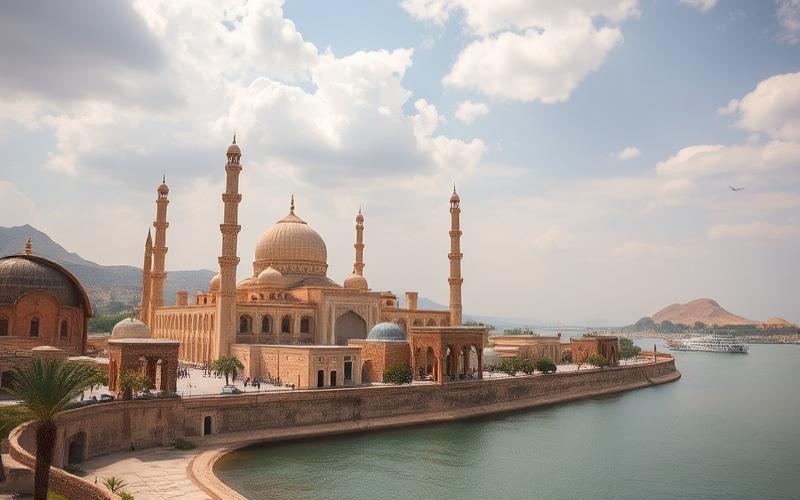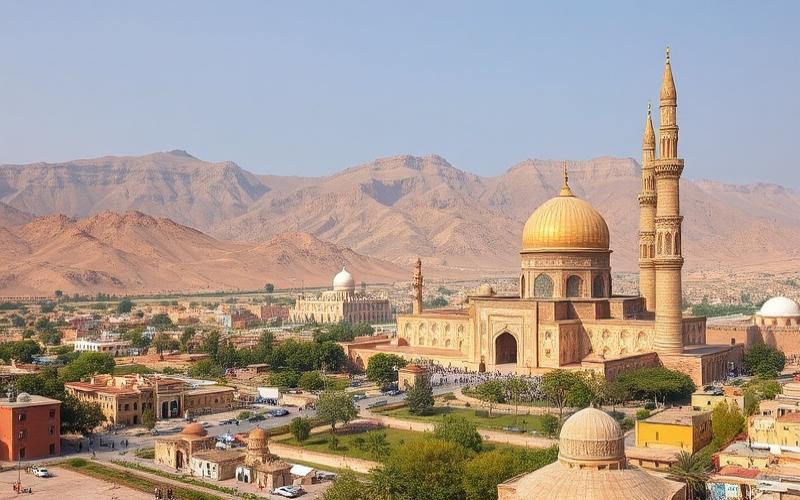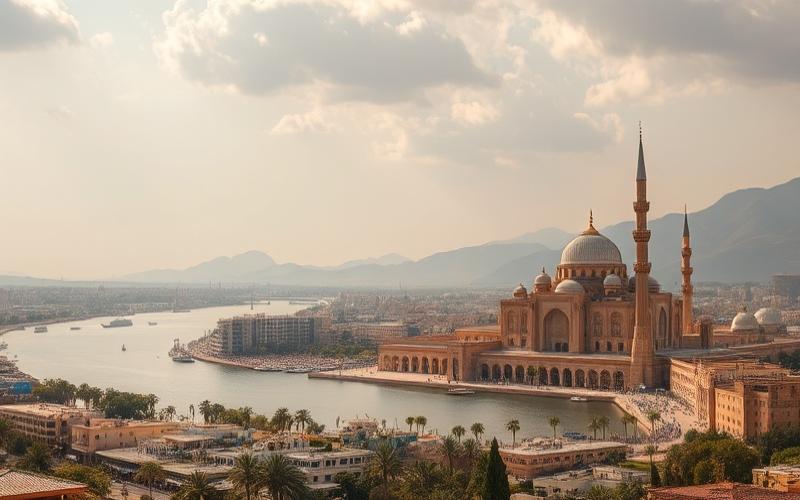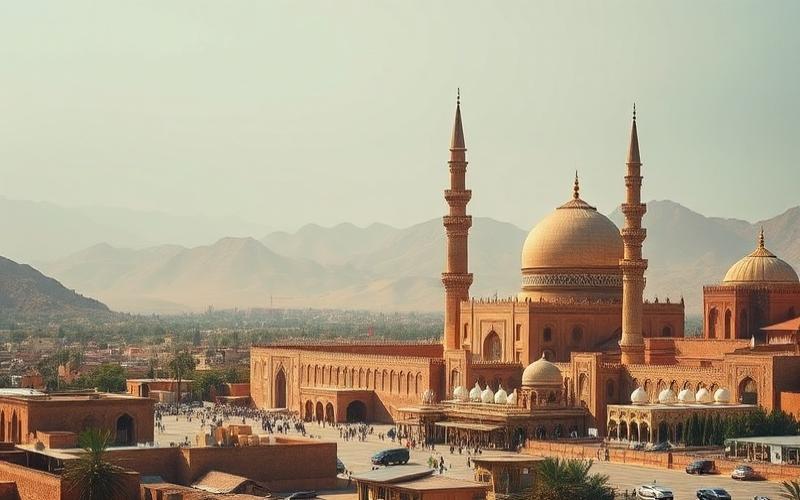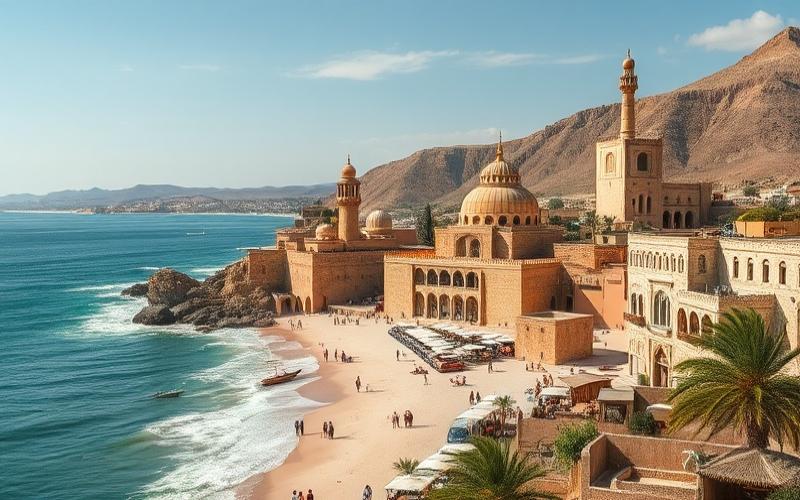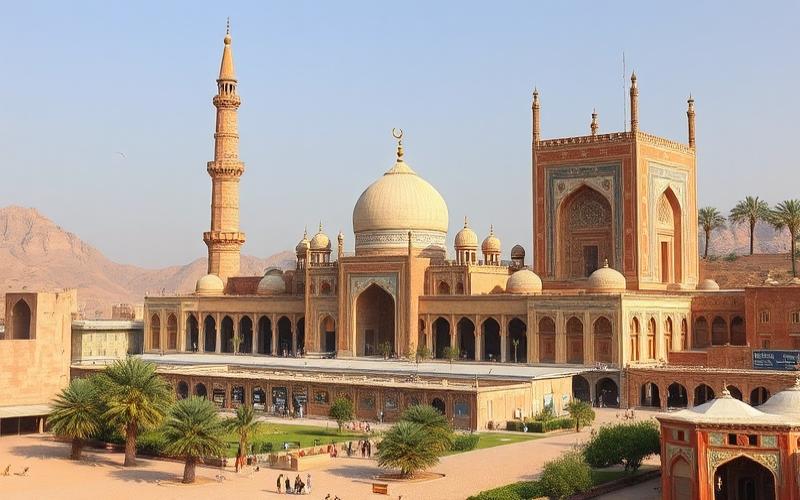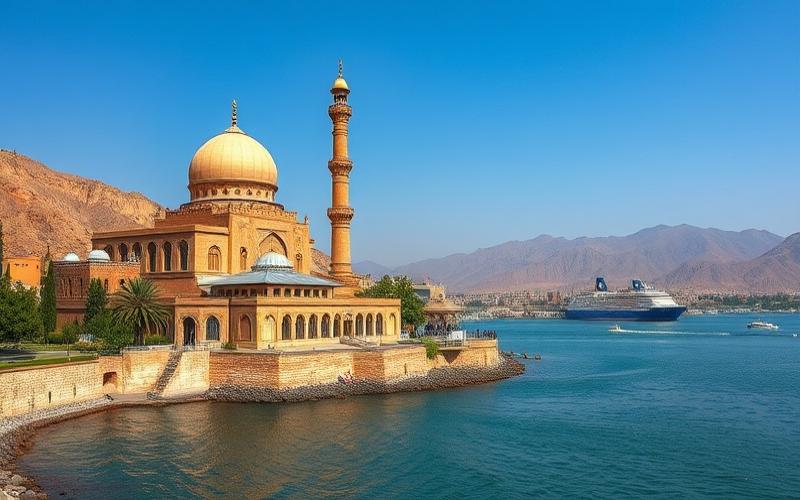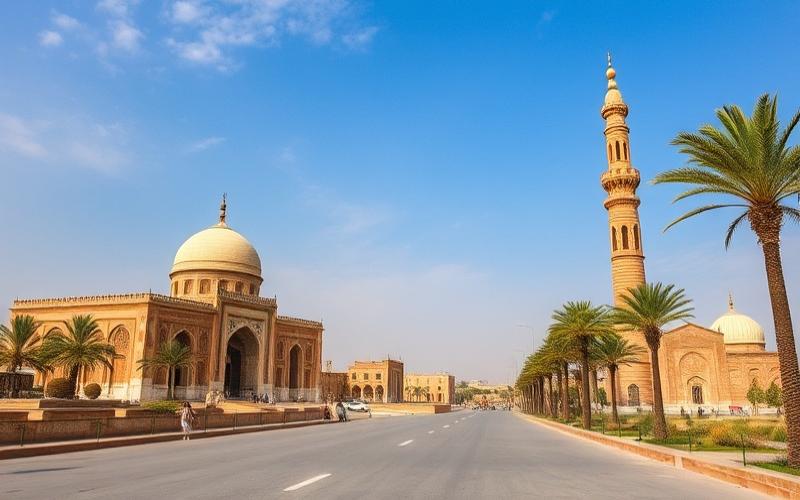
 Published on and written by Cyril Jarnias
Published on and written by Cyril Jarnias
In an increasingly globalized world, starting a business abroad appeals to many entrepreneurs seeking new opportunities. Among attractive destinations, Bahrain stands out with its favorable business climate and global openness.
With advantageous tax frameworks, dynamic government support, and a strategic location at the heart of the Persian Gulf, this kingdom presents fertile ground for expatriates looking to launch their businesses.
This guide explores the specifics of the Bahraini market and provides essential keys to successfully navigate this unique business environment, where innovation and tradition harmoniously coexist.
Understanding Legal Structures for Starting a Business in Bahrain
Bahrain offers several legal structures for business creation, each suited to different entrepreneurial profiles and needs. Here’s an overview of the main options, their characteristics, and selection criteria.
| Legal Structure | Number of Shareholders/Partners | Minimum Capital | Liability |
| Limited Liability Company (LLC/WLL) | 2–50 | Flexible (≥ BD 50/share) | Limited to invested capital |
| Public Joint Stock Company (BSC Public) | ≥2 founders | High (BD 250k–1m+) | Limited to invested capital |
| Closed Joint Stock Company (BSC Closed) | ≥2 | High | Limited to invested capital |
| Sole Proprietorship | 1 | None | Unlimited |
| Partnership | ≥2 | None | Unlimited |
| Simple Limited Partnership | ≥2 | None | Mixed: general partners unlimited, limited partners limited |
| Joint Stock Partnership | ≥4 | Not specified | Mixed: some unlimited, some limited |
| Branch/Representative Office | Foreign company | Not required | Parent company responsible |
Main Characteristics:
- LLC / WLL: Preferred structure for SMEs and foreign investors due to flexibility and limited asset risk. Allows 100% foreign ownership in most sectors.
- Public/Closed Joint Stock Company: Requires high capital; suitable for large enterprises or projects needing significant fundraising. Liability limited to capital contribution.
- Sole Proprietorship: Easy to establish but exposes owner to unlimited liability for debts.
- Partnerships & Limited Partnerships: Generally unlimited liability except for limited partners in hybrid structures.
- Branch/Representative Office: For multinationals wanting to operate locally without forming a separate entity; branches are legally binding, offices limited to non-commercial activities.
Criteria for Choosing the Right Structure:
- Type of Activity: Commercial or industrial companies prefer LLC/WLL or BSC depending on size; professional services often use partnerships.
- Desired Control: Sole proprietorship offers full control but little protection; LLC/WLL allows power sharing while protecting each partner.
- Tax Implications: Bahrain imposes no corporate tax outside oil/gas sectors, but some structures face more accounting or regulatory formalities.
List of Specific Regulations Regarding Foreign Investment:
- In most commercial sectors, it’s possible to hold up to 100% capital through an LLC/WLL or local branch.
- Some strategic sectors remain partially closed to foreigners: oil/gas, defense, public services often require a local partner or special government authorization.
- The procedure includes obtaining prior security clearance from the Ministry of Interior and registration via SIJILAT – the official portal centralizing all administrative procedures.
Local Agencies and Useful Resources:
- SIJILAT: Official government platform for all business creation and management procedures
- Ministry of Commerce and Tourism (MOICT): Central authority issuing commercial licenses
- Bahrain Chamber of Commerce: Sector advice, networking
- Local specialized firms like LevantBMS offer personalized support based on entrepreneur profile
Concrete Examples – Successful Expatriate Businesses:
| Company | Structure | Advantages |
| Consulting XYZ | WLL/LLC | Full foreign control + asset protection |
| Fintech Startup ABC | BSC Closed | Private fundraising among international partners |
| Global Retail Group | Branch | Direct extension from European parent company |
| Freelance Designers | Sole Proprietorship | Quick setup without partners or heavy formalities |
Choices are primarily based on:
- Desired degree of autonomy vs. collaboration with local partners
- Specific sector requirements regarding regulations
- Administrative ease offered by SIJILAT and other local agencies
To optimize your entrepreneurial project in Bahrain, it’s recommended to thoroughly analyze your activity, financial goals, and seek advice from official resources before any final decision on the ideal legal status.
Good to Know:
In Bahrain, limited liability companies (LLCs) are popular due to low capital requirements and limited liabilities, while partnerships require at least two partners with unlimited liability. Foreigners often need to obtain a commercial license, and some structures may impose ownership restrictions, but local agencies offer guidance to navigate these regulations.
Administrative Procedures for Expatriate Entrepreneurs
Key Administrative Steps to Create a Business in Bahrain as an Expatriate:
- Name Selection and Activity Validation
- Choose a unique company name complying with local rules.
- Obtain name and activity approval from the commercial registry.
- Document Preparation
- Company bylaws.
- Passport copies of all shareholders.
- Lease agreement for premises.
- No-objection certificate if required.
- Business plan (often required by banks).
- Registration with Authorities
- File documents with commercial registry via Ministry of Industry and Commerce portal.
- Obtain commercial license after registration validation.
- Register with social security (GOSI) if hiring staff.
- Opening a Business Bank Account
- Provide: commercial license, bylaws, commercial registry, identification, proof of address, business plan.
- Initial deposit varies by bank (typically between 5,000 and 20,000 BHD).
- Mandatory meeting with account manager.
- Residence and Work Permits
- Apply for investor or entrepreneur residence visa.
- Obtain work permits for self and expatriate employees via Labour Market Regulatory Authority (LMRA).
Summary Table of Required Documents
| Step | Required Documents |
|---|---|
| Name Approval | Name proposal, activity description |
| Company Formation | Bylaws, passports, no-objection certificate, lease agreement |
| Commercial Registration | Complete formation file, proof of address |
| Bank Account Opening | Commercial license, bylaws, registry, identification, business plan |
| Visa & Work Permit | Passport, employment contract, company proofs |
Specifics of Legal and Regulatory Framework for Foreigners
Expatriates can own 100% of capital in many sectors, but some activities are reserved for nationals or require a local partner.
Business creation is facilitated by a one-stop shop, the Bahrain Investors Center, centralizing most formalities.
Anti-money laundering checks are strict, requiring transparency on fund origins and ownership structure.
Tips for Local Assistance
Use specialized consulting services or liaison agents to facilitate procedures and interpret local regulations.
Utilize the Bahrain Investors Center for comprehensive support.
Contact local chambers of commerce or law firms for personalized assistance.
Role and Benefits of Free Zones in Bahrain
Free zones offer benefits such as:
- Tax exemption (corporate and dividend taxes)
- Possibility of 100% foreign ownership
- Simplified customs and administrative procedures
- Infrastructure suited to import-export and logistics
Access Conditions:
- Be registered in the free zone
- Comply with authorized activities in the relevant zone
- Meet minimum capital and infrastructure requirements
Essential Points to Remember
- Fast process (often under one week for creation)
- Administrative transparency and support via one-stop shop
- Ability to rely on specialized firms to optimize setup
- Free zones are particularly advantageous for industrial, logistics, and export activities
Creating a business in Bahrain as an expatriate is an administratively simplified process but requires rigorous document preparation and a good understanding of regulatory frameworks and specific benefits offered by free zones.
Good to Know:
In Bahrain, to create a business, expatriates must obtain an investor visa and residence permit, register their company with the Ministry of Industry and Commerce, and can benefit from tax advantages in free zones with no taxes for certain types of activities. Using local consulting services can simplify access to complex administrative procedures.
Tax Considerations and Access to Funding
Tax Considerations for Expatriates Creating a Business in Bahrain
- No corporate tax for most sectors, except oil and gas companies, which may be subject to specific rates.
- No personal income tax, nor withholding tax on dividends or interest in most cases.
- Mandatory tax registration with the National Bureau for Revenue (NBR), obtaining a unique tax identification number.
- Limited declarations: only certain activities are subject to VAT (10% since 2022) and must file periodic returns if annual turnover exceeds a threshold set by tax authorities.
| Tax | General Rate | Observations |
|---|---|---|
| Corporate Tax | 0% | Excluding hydrocarbons sector |
| VAT | 10% | Only certain businesses |
| Income Tax | 0% | No personal taxation |
Main Tax Incentives:
- Possible foreign ownership up to 100%, no need for local partner
- Full or partial exemption in certain free zones and strategic sectors
- Administrative one-stop shop (“Sijilat”) facilitating all procedures
Challenges and Opportunities Related to Funding
Opportunities:
- Developed financial system with presence of many local and international banks (HSBC, Standard Chartered, BNP Paribas…)
- Facilitated access to commercial credit thanks to Bahrain’s regional position as Gulf financial hub
- Growing presence of regional venture capital funds and business angels, particularly through local incubators supported by Bahrain Economic Development Board
Challenges:
For some expatriate profiles or innovative projects, direct access to traditional bank financing may require local history or significant guarantees.
Available Alternatives:
- Traditional bank loans (often subject to thorough analysis)
- Microcredit via specialized institutions
- Regulated crowdfunding
- Public sector funds via Tamkeen (national development agency)
- Local/regional venture capital
- Specialized Middle East business angels
Specific Regulations & Opening a Business Bank Account
Generally Required Documents:
- Signed formation documents
- Commercial registration certificate issued by MOICT/Sijilat
- Passport(s) of director(s) & proof(s) of address
- NBR tax number/Bahrain VAT Certificate if applicable
Some banks may request:
- A concise business plan
- International bank references
Notable Characteristics of Bahrain’s Financial System:
Remarkable administrative simplicity thanks to digital one-stop shop “Sijilat”, allowing digital submission of documents.
Flexible banking openness for resident or non-resident foreigners. No mandatory need for local partner.
Strict anti-money laundering regulation but internationally recognized business-friendly environment.
Key Points
- Extremely attractive taxation – almost complete absence of direct taxation outside hydrocarbons
- Fast and streamlined administrative procedures thanks to official digital platforms
- Varied access to funding but sometimes need to demonstrate local credibility with traditional financial actors
Good to Know:
Bahrain offers an attractive tax framework with no corporate tax for most activities, but expatriates must ensure compliance with local reporting requirements; international banks and local financial services facilitate capital access, although presenting a solid business plan is essential for funding options like venture capital. Opening a corporate bank account in Bahrain typically requires documents such as formation deed and legal address proof, and understanding specific requirements of each financial institution is crucial.
Cultural Differences and Support Resources for Expatriates
Expatriates settling in Bahrain frequently encounter marked cultural differences, particularly in customs, business practices, and social norms. Understanding these specifics is crucial for successful integration and professional establishment.
Main Cultural Differences
| Domain | Bahrain | Concrete Examples |
|---|---|---|
| Religion & Customs | Muslim-majority country, respect for religious practices (especially during Ramadan), importance of Friday as rest day | Eating, drinking or smoking in public during Ramadan is frowned upon. Work hours may be adjusted during this period. |
| Social Habits | Limited mixed-gender interaction in some public spaces, importance of respect towards elders and authorities, modest dress code even for foreigners | Wear covering clothing during business meetings, avoid public displays of affection. |
| Business Practices | Business relationships based on trust and networking, importance of time and personal relationships, decision-making sometimes slower than in Europe | Meetings often start with informal discussions, major decisions may require multiple meetings. |
| Language | Arabic is official language, English commonly used in business | Contracts can be drafted in English, but knowing a few Arabic words for greetings or thanks is appreciated. |
| Diversity | Very cosmopolitan population (over 55% foreigners), coexistence of multiple nationalities and cultures | Neighborhoods, schools and international clubs adapted to expatriates. |
Support Resources for Expatriates in Bahrain
- Expatriate Clubs:
- Bahrain Rugby Football Club
- British Club Bahrain
- American Women’s Association
- Local Francophone Circle
- Chambers of Commerce:
- French Chamber of Commerce and Industry in Bahrain (FCCIB)
- American Chamber of Commerce Bahrain
- Bahrain Chamber of Commerce and Industry (BCCI)
- Government Services for Foreigners:
- Labour Market Regulatory Authority (LMRA): visa procedures, work permits, information for expatriates
- Bahrain eGovernment Portal: administrative information, settlement assistance
- Business Creation Support:
- Tamkeen: government agency for entrepreneurship support and skills development
- StartUp Bahrain: platform for entrepreneurs, networking and funding
- Private settlement consulting firms (legal, tax, HR)
Importance of Cultural Understanding and Adaptation
Understanding and respecting local culture is essential to build trust relationships, avoid misunderstandings, and succeed in professional integration in Bahrain. The ability to adapt to social norms and local business practices constitutes a major asset for any expatriate.
Good to Know:
Expatriates in Bahrain must adapt to local customs such as respecting prayer days and modest dress, and can turn to resources like expatriate clubs, chambers of commerce, and dedicated government services for effective support. Understanding and respecting these cultural differences is crucial for successful professional establishment in this country.
Disclaimer: The information provided on this website is for informational purposes only and does not constitute financial, legal, or professional advice. We encourage you to consult qualified experts before making any investment, real estate, or expatriation decisions. Although we strive to maintain up-to-date and accurate information, we do not guarantee the completeness, accuracy, or timeliness of the proposed content. As investment and expatriation involve risks, we disclaim any liability for potential losses or damages arising from the use of this site. Your use of this site confirms your acceptance of these terms and your understanding of the associated risks.

















